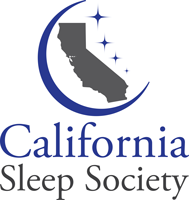By: Rafael Pelayo, MD
It seems that the news about the Coronavirus pandemic got markedly worse after we lost an hour of sleep due to the daylight-saving shift. Correlations are not causation, but lack of sleep makes us more susceptible to viral infections. So “springing forward” probably did not help us. I am certain that our California Sleep Society members have been bombarded with news about the virus and how it impacts our personal and professional lives. Around the time the news about the virus spreading to USA came out, I had something nice happen to me. As I was exiting an elevator from my office at the Stanford Sleep Clinic, a young man wearing a hospital ID looked at me and asked if I was Dr. Pelayo. I stopped and said yes, thinking he might be a patient. He said that I probably would not remember, but over 10 years ago I agreed to let him shadow me in clinic. He said that was the first time he had ever shadowed a doctor. From that experience he went on to go to medical school, finished his residency and now was a new faculty member at Stanford School of Medicine! He said he had been wanting to tell me that he had never forgotten the experience of being in the sleep clinic. After he told me this, I had a mixture of happiness but also some embarrassment that I could not specifically remember him. Up until that chance meeting outside of the elevator, I was having what I thought of as a bad day, but my spirits were lifted by what this young doctor told me.
As I walked away from this young faculty member, I started to think about a patient from long ago. Many years ago, must have been at least twenty years ago, I got a call from a nurse about an overweight teenage girl, Amy, who was admitted to the intensive care unit after she had a seizure as a result of a medication reaction. Amy was prescribed a nasal spray to stop bedwetting. The medication was supposed force the kidneys to hang onto free water so she would urinate less. There was a miscalculation in the dosage, as somebody used her actual weight instead of her ideal body weight. She ended up diluting her electrolytes and had a seizure. Because of the seizure she was in the ICU for metabolic management. Fortunately, the nurse suggested a sleep consult to check her for sleep apnea because she was snoring so loudly in the ICU. When I met Amy, she had clear symptoms and signs of sleep apnea which we quickly confirmed with a sleep study. She started receiving bilevel positive airway pressure and completely stopped bedwetting a couple of days later. Her mother told me that when Amy was two years old, she had stopped bedwetting but started again when she was four years old and had persisted ever since. This was also around the time the parents first started to hear her snore. This was consistent for the timeframe when obstructive sleep apnea emerges in children in the three to six-year range. The parents tried all kinds of things, including rewards, punishments, alerting devices, and finally settled on using a medication which worked for a while. I explained to them that Amy probably had untreated sleep apnea that whole time. They were happy when she was discharged, and I never saw her again.
Around ten years later I got a card in the mail from Amy. She wanted to thank me. She said that starting the treatment for sleep apnea had changed her life. She had grown up blaming herself for bedwetting as a child and being unable to go to slumber parties with her friends. Once she started getting treatment for her sleep apnea, she knew it was never her fault in the first place, and her life turned around. You never know when you give somebody a little help what will happen in the long run. I think of Amy sometimes when I am working with some of my other patients. I think she has helped me more than I ever helped her.
As we now deal with the new uncertainties of the Coronavirus in our lives and in the lives of our patients in the course of performing our duties, we may perform or receive many small acts of kindness one may ordinarily not think twice about. But some people appreciate those acts and never forget. A small act may seem to go unnoticed but like a seed over time memories of that act may blossom into something beautiful. Never forget our patients and co-workers are watching us and we are in this together. It is important to remember that down the road, maybe years from today, we will all have war stories and tales of our experiences with the Coronavirus pandemic. For now, stay safe, keep your hands clean, and always get plenty of sleep.

